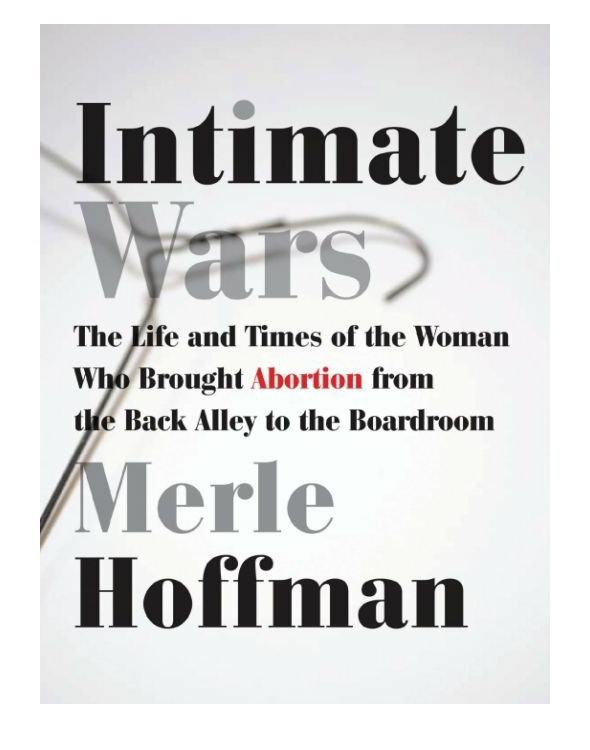
Intimate Wars
The Life and Times of the Woman Who Brought Abortion from the Back Alley to the Boardroom
فرمت کتاب
ebook
تاریخ انتشار
2012
نویسنده
Muffy Mead-ferroنویسنده
Max Bollingerنویسنده
Muffy Mead-ferroنویسنده
Max Bollingerنویسنده
Merle Hoffmanشابک
9781558617575
کتاب های مرتبط
- اطلاعات
- نقد و بررسی
- دیدگاه کاربران
نقد و بررسی

November 21, 2011
As director of one of the nation’s first ambulatory abortion clinics, activist and journalist Hoffman implemented “Patient Power” to ensure that the staff did not demean women seeking abortions. Characterizing abortion as “often an act of love, and always an act of survival,” she eloquently chronicles more than three decades of struggles to keep abortion legal. Although replete with intimate details, such as her erotic teenage attachments to teachers, an affair with the married physician she persuaded to leave his wife for her, and her decision in her 60s to adopt a child, her memoir lacks introspection. Readers will wonder why she is so aggressive, competitive, and self-centered—referring to “my clinic,” “my counselors,” “my staff,” and describing how she “imperiously” entered a formal dance with her married lover and “answered for him” when he was asked about his wife’s absence. Hoffman’s arrogance contrasts sharply with her compassion for patients. Hoffman’s lack of self-observation mars the book, but readers will learn much about her drive to recast “reproductive freedom as a positive moral value.” 24 b&w photos.

October 15, 2011
A searingly honest debut memoir by a leader in the fight for a woman's right to "legally gain and exercise reproductive choice—the power of life and death." Hoffman—founder and CE0 of Choices, one of the largest women's medical facilities in the country and editor of the quarterly magazine On The Issues—writes about how stultifying she found the expectations for women as she was growing up. She explored the idea of living an artistic life but lacked a true calling until, by chance, in 1970, she answered an ad for a part-time job as assistant to a New York City family doctor. New York State had just legalized abortion, and her employer, Dr. Martin Gold, saw this as an opportunity to position his HMO as a leader in providing abortion services to women. He and his partner opened the Flushing Women's Medical Center, one of the first ambulatory abortion facilities in the country, and she managed the office for them. The next year, she and Gold established Choices, with her as director. The clinic pioneered in the new field of women's-health services, offering alternatives to mastectomy as well as abortion services. She writes animatedly of the exciting first few years when the trajectory of the women's-rights movement was on the upswing and she became one of its leaders as her relationship with Dr. Gold deepened—ultimately leading to marriage. Then the right-to-life movement regrouped. By 1985, there had been 150 attacks on abortion clinics, and the author received numerous death threats. An inspiring story of a woman who participated in "one of the greatest revolutions in history"—and is still at the forefront of the struggle.
(COPYRIGHT (2011) KIRKUS REVIEWS/NIELSEN BUSINESS MEDIA, INC. ALL RIGHTS RESERVED.)

December 1, 2011
Activist Hoffman (publisher, OnTheIssues.org) has played a significant role on the front lines, making abortion and basic health care accessible to women in the United States. A chance job with a doctor who worked to set up one of the first legal abortion clinics in New York City introduced Hoffman to abortion services; she eventually became the executive director of the clinic (and the wife of the internist). The creation of the National Abortion Federation in 1977 provided her a national stage for advocacy; she later also undertook international work. The success of the first clinic generated resources that allowed Hoffman to open a larger facility in 1978 that served some 500 patients a week. She writes how the backlash of the 1980s and the violence and intimidation practiced by anti-abortion activists took its toll, but she maintained the clinic in the face of incessant harassment and continued to be a prominent advocate. Finally, at almost sixty, widowed, Hoffman fulfilled her desire to have a daughter; she writes of the process of adopting a three-year-old girl from Russia. VERDICT Deeply personal, this title will appeal to readers interested in women's memoirs, the history of U.S. feminism, and abortion rights.--Cynthia Harrison, George Washington Univ., Washington, DC
Copyright 2011 Library Journal, LLC Used with permission.

























دیدگاه کاربران